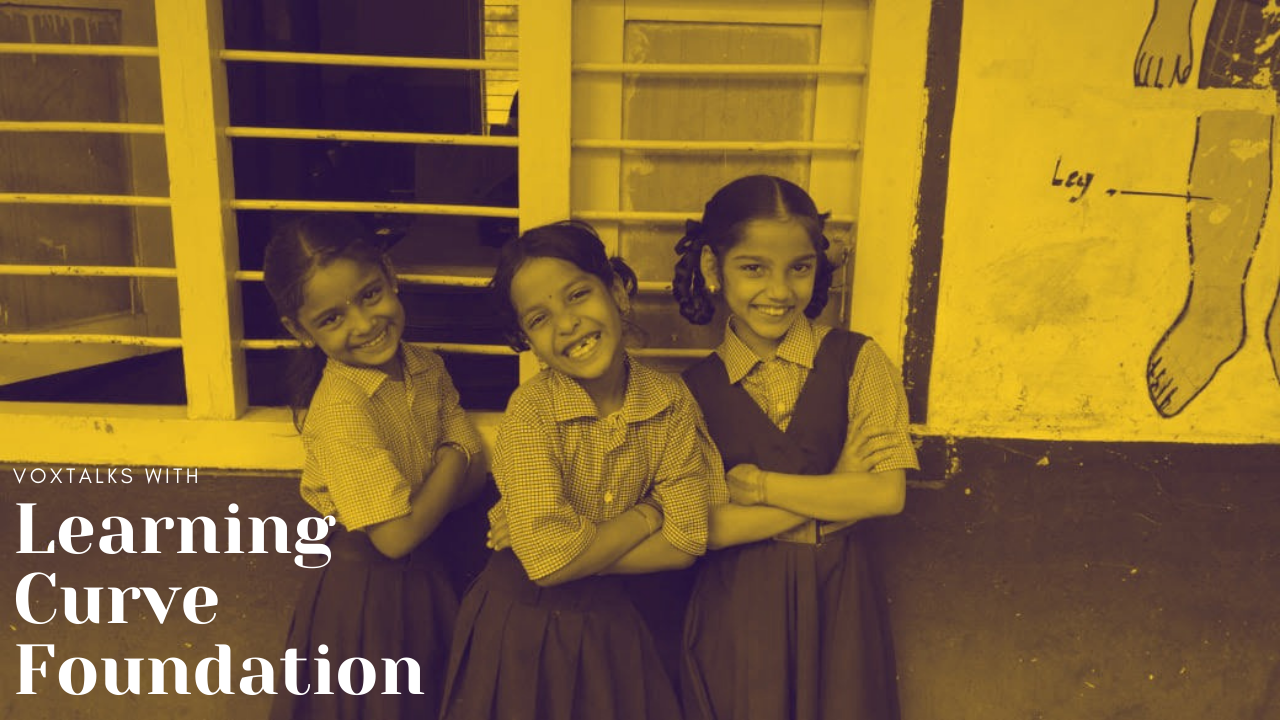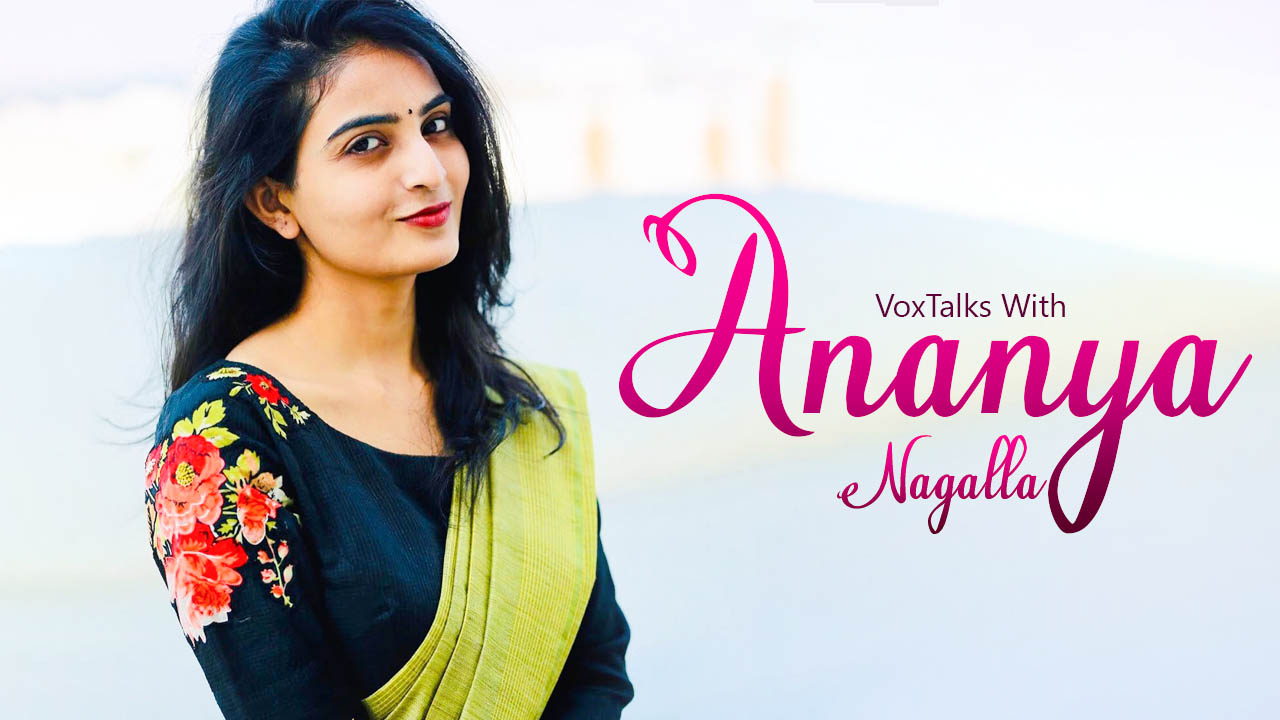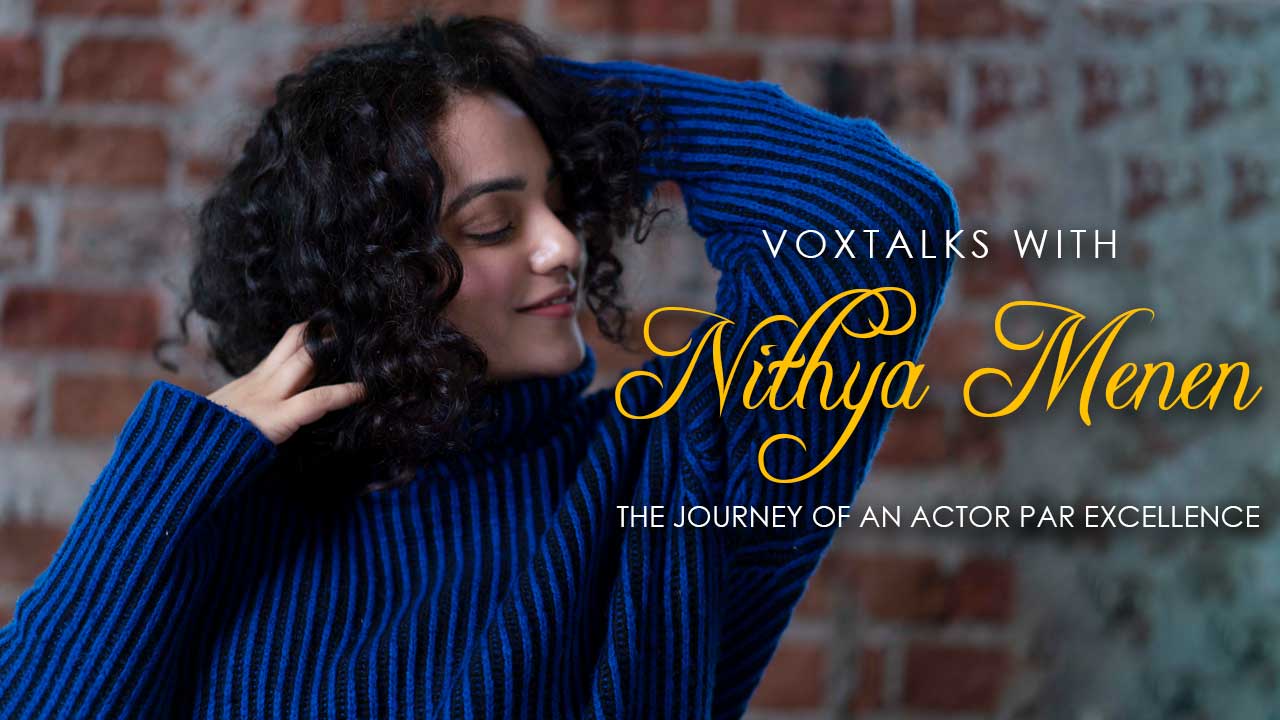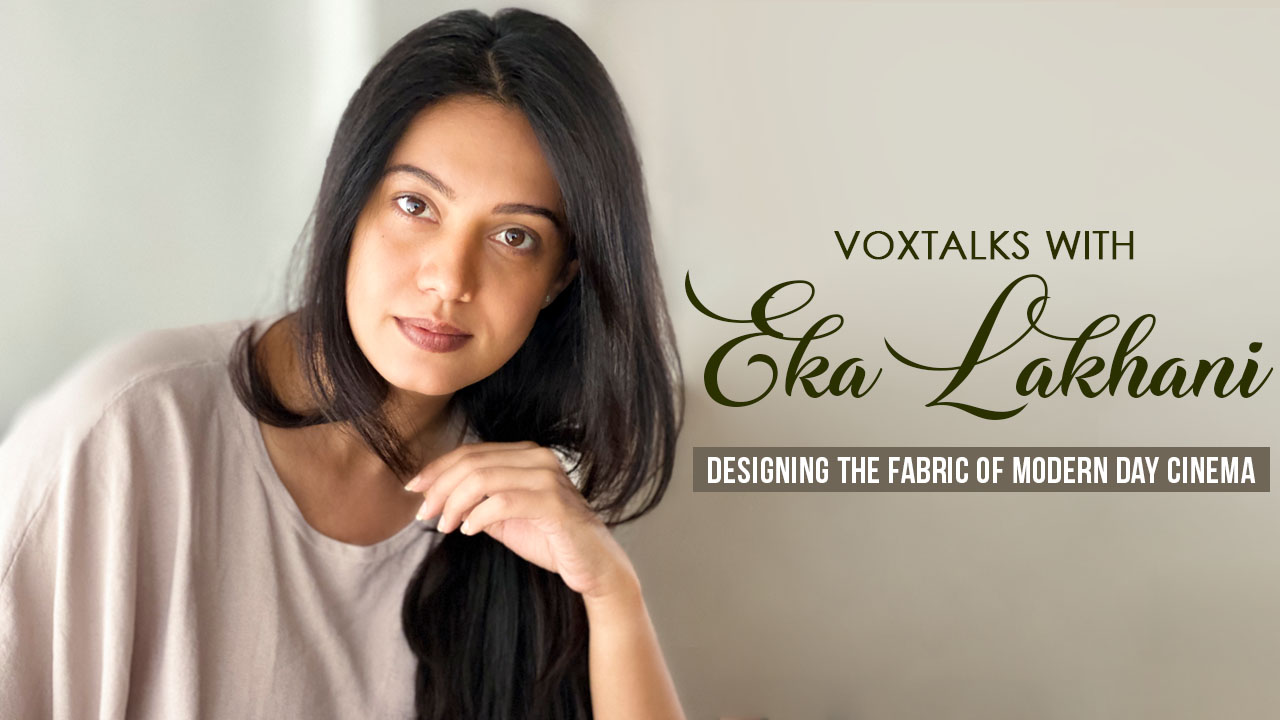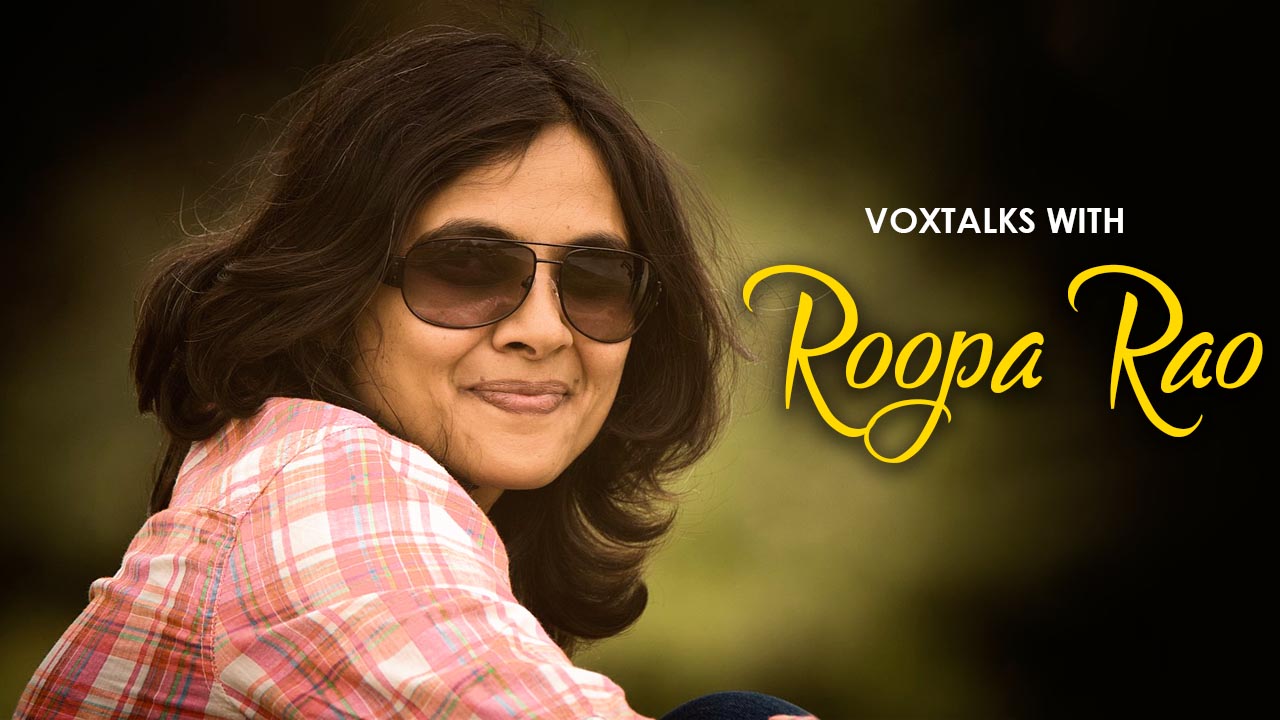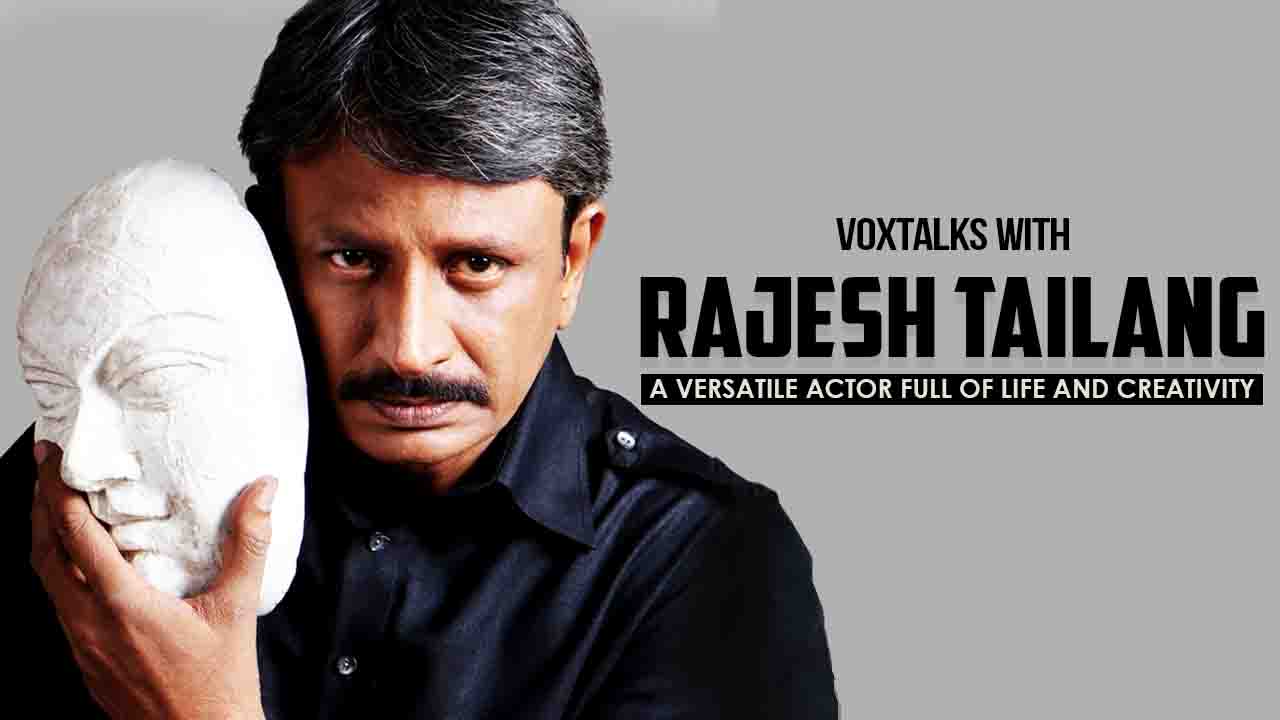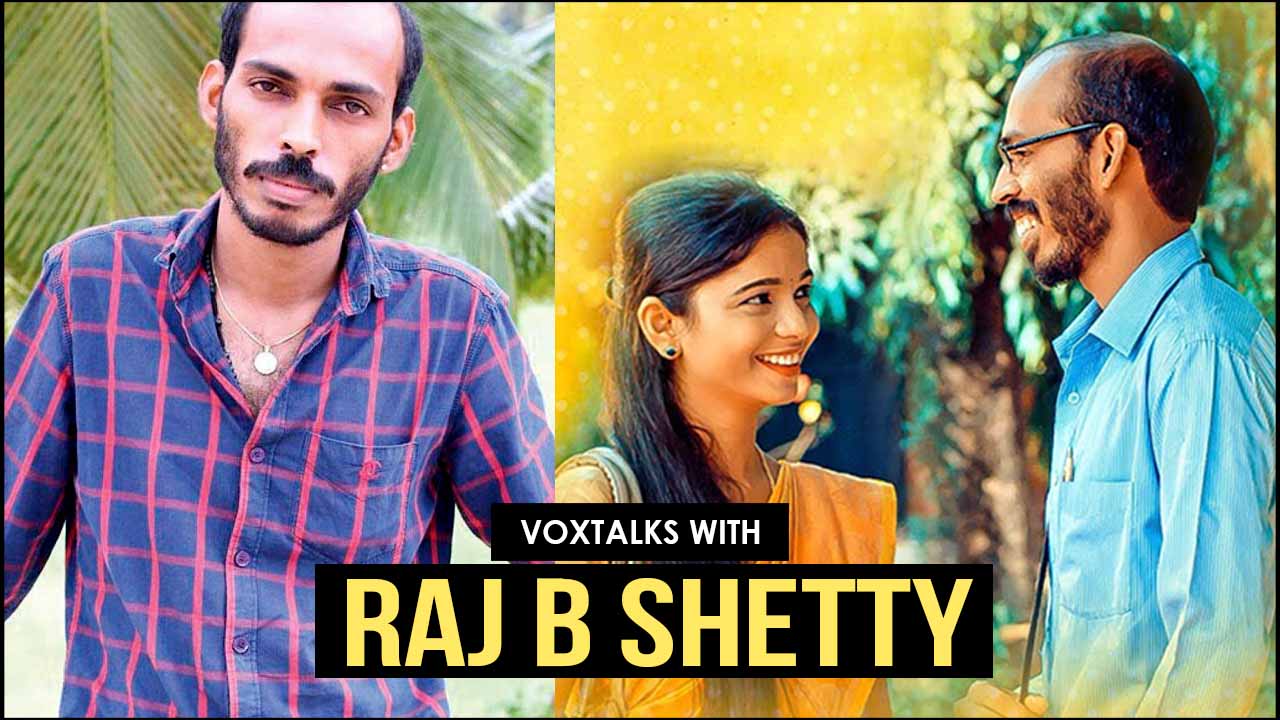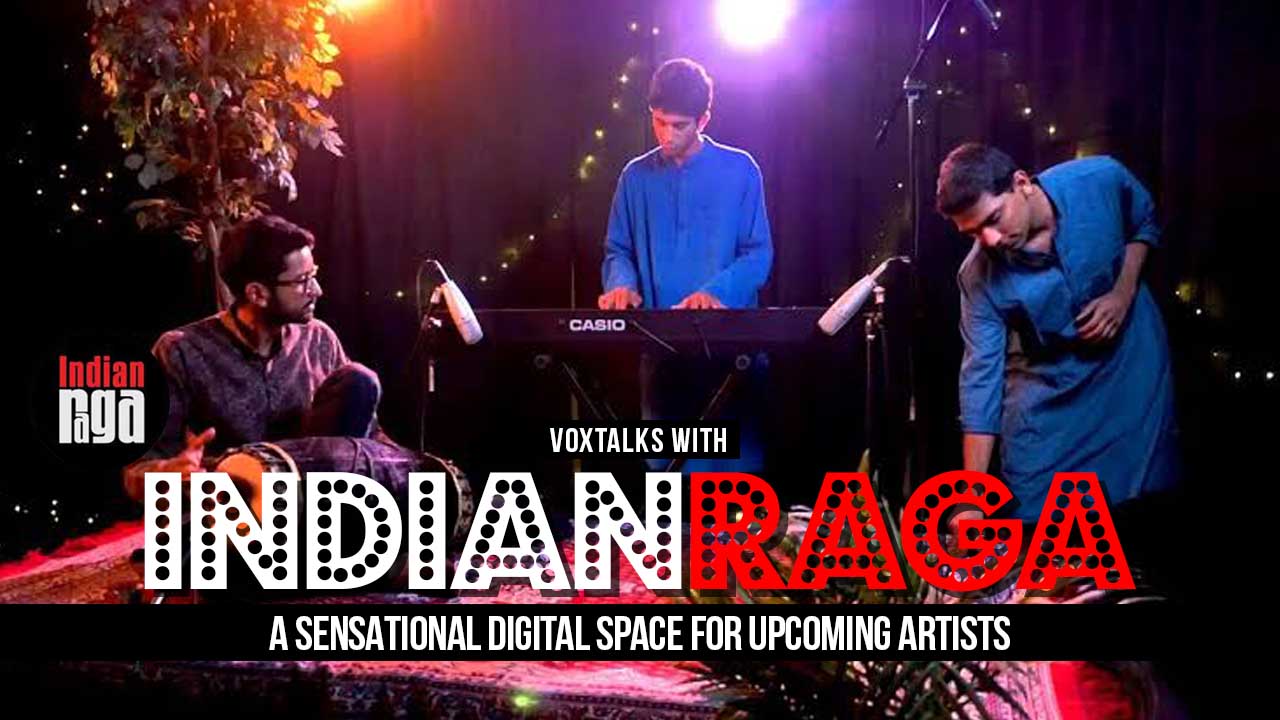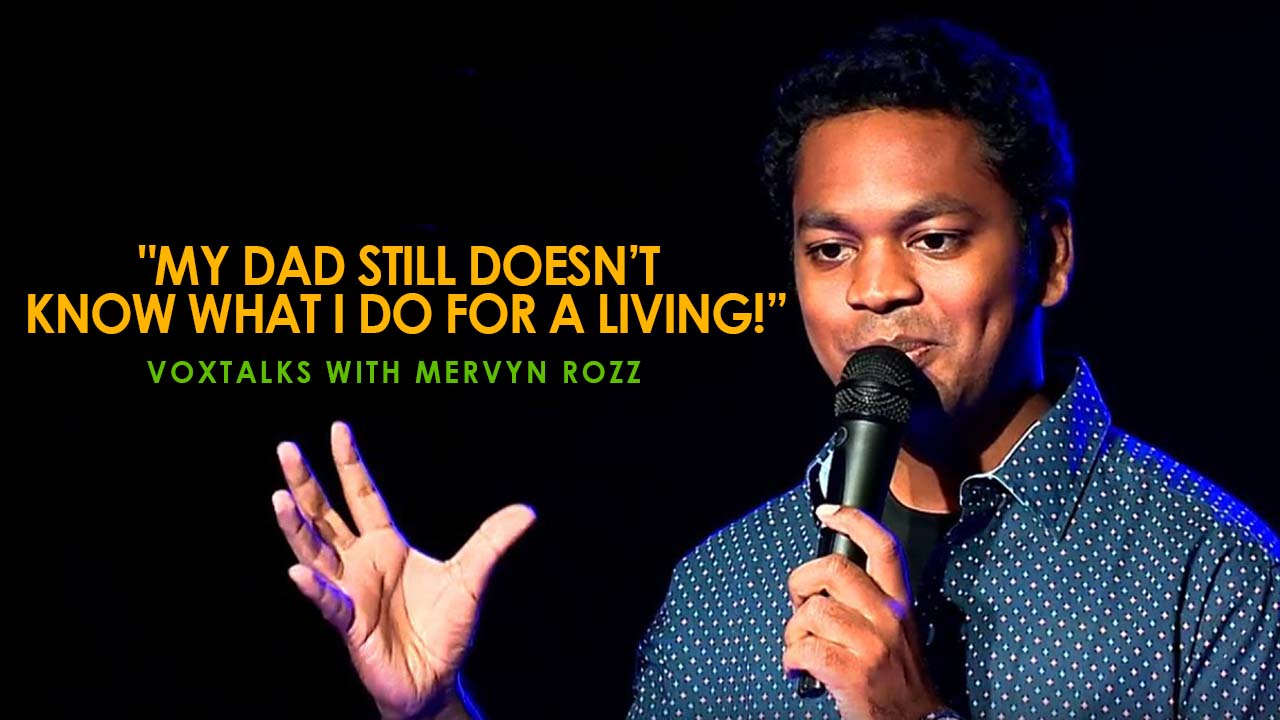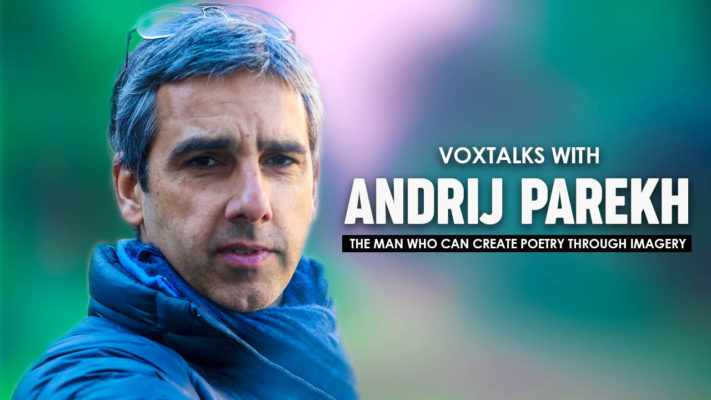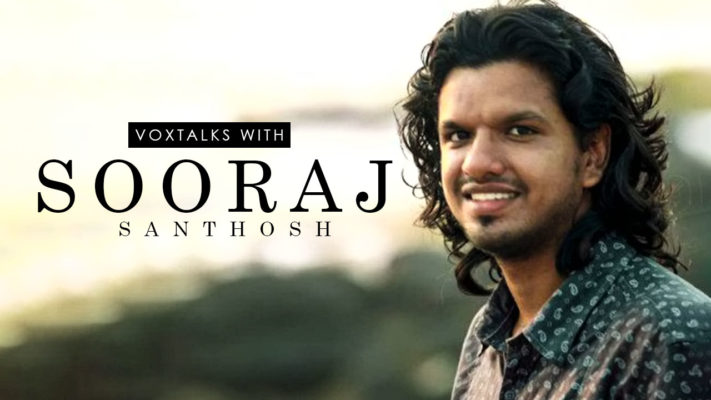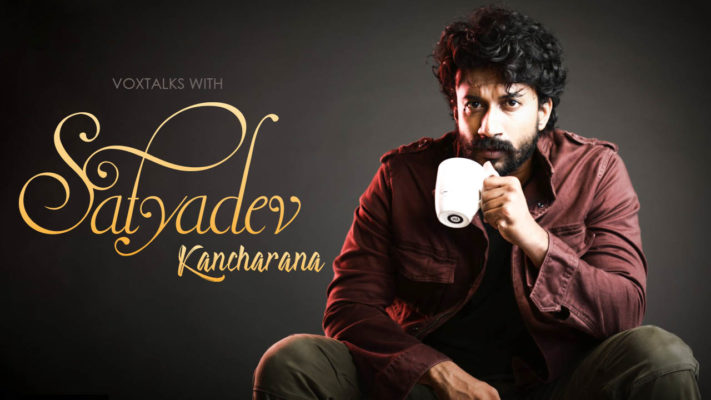
Gulshan Devaiah : A Consistently Versatile Actor
Gulshan Devaiah is one of the most exciting and consistently brilliant actors working in the Hindi film industry. He always brings a kind of recognizable element to the roles he plays. Be it the arrogant rich brat in Shaitan or the eccentric & animated twins in Mard Ko Dard Nahi Hota or the intimidating but quirky gangster who is a huge Upendra fan in That Girl in Yellow Boots, he seems so effortlessly authentic in their portrayal. He is the kind of actor who holds himself to a very high standard, by choosing really unconventional and unpredictable characters. In his illustrious journey, he has worked with directors like Anurag Kashyap to Sanjay Leela Bhansali to Rohan Sippy. We had the privilege to pick his brain regarding his choices and his process. Here are some excerpts from that conversation:
So, let’s begin with your origins. You started off your career in the fashion industry, how did that happen?
So, it was always going to be acting, fashion just came along the way. I was in my late teens and I didn’t know what to do. I was born and raised in Bangalore and nobody in my family or friends had anything to do with films. Sometimes, you have these dreams, but you don’t know a way to reach them, there was no concrete pipeline for something like that, especially at the time. Then, you kind of give up on your dreams, and that’s exactly what I did in my early 20’s. I didn’t know what to pursue at the time, my grades were not that great either, most of my friends who grew up with me went on to do conventional courses like engineering, medicine, hotel management, etc. I was kind of lost, but I was always really good with my hands, I could draw, paint, and had what I would consider now good imagination.
So, one of my friends suggested me to try NIFT or NID. I had no idea what that was. He explained to me in detail, what they were and how to apply for them. I somehow missed my NID application, so I applied for NIFT. Through a newspaper clipping, I found this person in Bangalore called Vidya Sagar who used to own a boutique. He used to train people for NIFT entrance exam. I must tell you, it’s not very easy to get into NIFT and I had no idea. But he helped me out with that, he taught us about the kind of focus we needed have and the skills that we needed to be good at, to clear the exam. With his help, I cleared the exam and got in. I enjoyed it a lot because I felt I was good at it and I could express myself artistically. As time went by, I got really good at it. When I graduated, I won all the top awards. Finally, I got my dad’s approval also, HAHA!. So, I think fashion kind of saved my life, it gave me something to do during a very confusing time in my life.
How did the shift happen from fashion to acting happen?
A lot of people think – That Girl in The Yellow Boots, is the first film I acted in. But, the first film I acted in was actually this film called Brides Wanted. I did that film in Bangalore around 2002-03, but it never saw the light of day. It had Mr Girish Karnad, Waheeda Rehman, Sarah Jane Dias and a bunch of talented actors featuring in it. I shouldn’t say this, but I am glad it did not come out because I cannot explain how bad I am in that film. I had no clue how to act in front of the camera and I wasn’t confident. Basically, I wasn’t ready. Then I moved to Mumbai and the first film I shot here was this film called Tina Ki Chaabi. It was a two-day part; I was almost an extra in it. Ranveer Shorey and Gitanjali Thapa were the leads. Some of my friends were involved in the film and one of them suggested my name and I got the role. I did the role, but again, even that film did not release. So, that was where acting actually began.
Sometime later, Kalki and Anurag called me over for dinner and they offered me the role in That Girl in The Yellow Boots. They told me that there was this character called Chittiappa, they were going to go with the whole pun of Chittiappa and Chutiyapa and all that. They were also really amused by the Dr. Rajkumar song which is used in the film. The scenes were not fully written, but they had a structure and what happened over the course of the film. They said – he can be anybody, but since you are from Bangalore, we thought you could add some texture to this character. I asked them to give me 2-3 days’ time to think of some ideas for it. I prepared something and sent it over. Anurag liked it and I was part of the film. I also think Kalki might have put in a word for me, I don’t really think Anurag had seen my any of earlier work. He just took a chance with me and I think it worked for the best. That’s how That Girl in The Yellow Boots happened and my acting career officially began.
Interestingly, you know Vasan Bala, the director of Mard Ko Dard Nahi Hota – He was an assistant on the film, and he was very against casting me as he thought it should be someone older. I won a lot of people over because of that film, including Vasan Bala, who cast me in all of his films since then. A lot of people told me, they would cast me, but he was the one person who actually followed through. HAHA.
A lot of your scenes seem very improvised in That Girl in The Yellow Boots. Can you talk a little about that?
It was semi-improvised on the set by me and this guy called Thani who plays my henchman ; he was also a writer. He was thrown into the scene in the last minute and we started improvising in Kannada. The Dr. Rajkumar song was always there in the script and they were very particular about that, I threw in the line about the Upendra picture. Anurag started noticing that I looked a little like Upendra with the long hair and beard and stuff. So, he started peppering that into the film, and it kind of happened organically, I feel. At a certain point, you can’t say what came first, the chicken or the egg, HAHA!
When you are in an Anurag Kashyap film, things keep changing a lot. I don’t know how he is working now, but at that time he was very organic in his approach. A lot of things would change last minute, he would give his actors a lot of freedom to bring something to the table. The first time I felt like a real actor was when I was on his set. He has this way of making you feel really confident without really saying anything. He just places a certain trust in his actors and this gives any actor a lot of confidence.
As I was going through your filmography, I observed that some of your films never got a theatrical release like Peddlers. Does that affect your work or choices in any way?
Yellow Boots did get a release, but I also knew that it was not a film that would get a really wide release. It has a very particular kind of audience, you know, its not very mainstream, per se. I was realistic about that fact and I just wanted really good reviews, so that the film fraternity at least would notice. So, my expectations for Yellow Boots were very realistic. Perhaps, not so much on Shaitan, I thought that film would do a lot better. A lot of people saw it, but it also released on the same day as X-Men. I am very happy about that film though because it gave me that kind of visibility that I needed at the time.
When we get to Peddlers again, I was not expecting a very wide release. It was a small film; the appeal is also was very niche. I think Eros came on board, they traveled with us to Cannes, they didn’t really have a plan and it kind of fizzled out. Like Yellow Boots, I think if they had done a small limited release or something, it would have been nice, but that didn’t happen. It was tougher on Vasan than on me. He had no support to make the film, so he took it upon himself to do the film, to prove something. We all had to move on, but for him, it took some more time. But, that’s life man. The sooner you are acquainted with the reality of this business, the better it is. What happens is when you get a lot of success initially, you feel like you are on cloud 9. Later when you stumble and fall, you don’t know what to do. It is better to stumble and fall or to start off on shaky ground from the beginning. Later when you get to firm ground, you know exactly where you stand.
When you get success, people start treating you differently. I am not the most successful actor, and yet people treat me very differently and it is easy to get used to that. That will fade away at some point and you won’t know what to do. My first year was great, three of my films were releasing, I was nominated for a shit ton of awards, but I won nothing. HAHA. That kind of prepared me for the reality of this industry. At the end of the day, it is also a business and people want to make money. Sometimes being good is not good enough, even you if are terrific or something, it’s not good enough. Your craft and your career are two different things, you have to focus on them separately. So, I see it as a harsh lesson that would be good for me.
There has been a certain amount of typecasting that has happened in your case. You are repeatedly cast in negative roles. Was that a conscious choice on your part?
Initially, when I started off, I did a film called Dum Maaro Dum. I played one of the bad guys in the film. In Shaitan for some reason, people think I play a bad guy. At least, casting directors think so, and I have stopped trying to reason with them. In Yellow Boots, I definitely play a bad guy, even Hate Story, the leading man but kind of a bad guy.
People say, when you are starting off your career, you need to be careful with your choices. I mean I was careful, but I did not have much of a choice. I was very happy working with really good directors who trusted me, like Bejoy Nambiar, Anurag Kashyap, and Rohan Sippy. They really gave me the freedom to be creative, and sort of pour myself into my work and do my thing. But I couldn’t have really been picky at that point in time. But what happens is that people see you a certain way and offer you only such roles.
You have no idea how many roles I have turned down after Shaitan, which are just like KC. There have been scripts written with me in mind, with my name in it, my character was literally named Gulshan. I did not want to do those roles, because people had a fixated opinion of what I could do. It kind of bothered me, but I didn’t feel offended when people looked at me that way. I wanted to show my versatility as an actor, I didn’t want to be in a hurry and I wanted to take my time and choose the right project. Later, Hunterrr came along. The director for Hunterrr was the one who actually saw me as Mandar Ponkshe. He trusted me with it, that to some extent changed the way people saw me, but then everybody wanted me to be Mandar Ponkshe. Even, after Mard, people only want Jimmy. Nobody wants Mani.
I don’t think anybody is to blame for that. We all compartmentalize, we put people in slots. So, I think I have also been put in a slot. I get a lot of work that I have to turn down because I think I am repeating myself or just playing another version of a character that I have already played. I would like to think that I am versatile, but whether or not I am versatile, only time will tell. I end up not doing so much work because a lot of work that comes my way, I feel like I can’t bring anything new to the table. If I accept all those roles, I might be working 300 days a year, but will I be happy with that much work? I don’t know if I will have a legacy, but if I do have a legacy. I would like words like versatility, diversity or range to be associated with my legacy, rather than repetition and boring.
Do you see that changing due to the recent boom in online content, as you would have a lot more space to explore your characters?
Yeah, it is a little bit different, but it is still the same people, same industry, right? People who used to make films are now making web series. The same casting directors are casting these projects too. It is really not that different. I am really happy with people who want to work with me, but that decision is always with me. Maybe I won’t have any work for the rest of the year, but I am ok with that. I would rather wait and do something that excites me. People want me to play similar roles, even in web series, so I have to be a little careful about that. I did one called Smoke, which was on Eros Now. These people came up to me and said I need to play a Bihari gangster. I was like, I am from the south. They said that they had the confidence in me to pull it off. They gave me freedom and they paid me also, so I was super happy about that.
How would you describe your relationship with your directors?
I always believe that an actor should collaborate with a director, rather than work for them. There have been some directors, who collaborate well, some let me go wild and some who really direct me, but not totally imposing on me. In all these relationships, there has always been an open channel, sometimes mutual respect, sometimes admiration, sometimes trust. It kind of changes from director to director. Like with Mr. Bhansali, I thought I would have no freedom. On the contrary, he gave me a lot of freedom, more than I expected. He let me sort of interpret that character and it ended up a lot more different than what he had written.
It was the same with Anurag, he gave me a lot of freedom and trusted me. With Bejoy, there were very specific directions. With Rohan Sippy also, he would be very specific about things, but at the same time, it wouldn’t be stifling. He did not treat me like a puppet, he welcomed ideas and collaboration. So, before taking up any project, it is very important for me to talk to the director and find a way to get along with them. It could be anything, I have to find a way in, it could be just eating a Gulab Jamun, HaHa! You have to find something where you guys connect and have this open channel. I have managed to have that with most of my directors including Mr. Bhansali, known to be one of the most specific directors out there. I had heard of all the rumors about his scary persona and demanding nature, he is famous and infamous for that. Of course, he would direct me, but I could go to him ask him if he could try something and he would allow that. That is extremely important because ultimately it is a director’s film. No matter what you do, it is a director’s film. They cast it, edit it, shoot it and score it a certain way, to tell their story the best way they can. We are there to aide them in telling their story, at the end of the day it is all about trust. If I trust a director, I will do anything they ask me to do.
You have played many colorful characters over the course of your career. It must be very emotionally involving. What has been that one role you hated parting ways with?
I think, all of my initial roles, I hated leaving. I would quietly break down on my own. It was very personal for me; I was getting to live this dream and I did not want it to ever end. The last day of Shaitan, nobody knows this, but I would go into my room and shed a tear or so during breaks. That happened with Ram Leela also, it was a long and arduous shoot and it got very emotional. When you do something for a long period of time and when you are enjoying it, it gets hard to leave it behind. I think all good actors act because they love acting, if you can’t do that, you are in the wrong place. So, I used to get a little emotional for all those earlier roles, up until Ram Leela. After that not so much, I started to get a little detached. I have kind developed a certain amount of detachment, which I learned from other people and that’s probably healthier.
What is an advice that you would give aspiring actors that wish you were told, before plunging in?
Again, craft and career are very different things, running parallely. They are related, but they are two very different things, like love and marriage. Haha! I wish I had known this; I wish I realized this much earlier in my career. I would have been more prepared for that. I had no idea what to do with my career, all I knew is how to act. If somebody gave me a script and asked me to perform it, I would act the shit out of it. I got a lot of attention in 2011, but I didn’t know how to channelize it properly. I thought if I was good at my craft, it was good enough. So, I would tell them to polish their craft and keep learning as much as possible, but also remember to concentrate on your prospects and in turn your career. At the end of the day, every good artist also wants you to have a good career. Your craft becomes art when someone else pays a shit ton of money to buy it and put it on their wall. Haha! I kind of get embarrassed when I call myself an artist, you know. I am a craftsman, acting is my craft. If it’s art, somebody else needs to call it art. I can’t call my craft art, that is not for me to say.
Finally, we would like you to tell our readers about some performances that have really inspired you over the years.
French Connection:
The first time I really looked at a performance and was inspired to act was when I watched French Connection On TV. I was blown away by Gene Hackman’s performance in that film. I mean it felt so real, it did not feel like acting. In those early days of cable TV, they used to air these films uncensored on Star Movies. I had no idea of the craft at the time, so it had a great impact and I wanted to be like that.
Satya:
As I told you, in the late 90’s I was very confused and I did not know what to do and watching that film gave me hope. I thought I could become a gangster in an RGV film. I did not look like a model and I could not dance and stuff, but I could do this. Manoj Bajpayee and JD Chakravarthy changed the definition of what a protagonist could be. The way they looked to the way they carried themselves to the language they spoke. To some extent, Nana Patekar, Irfan Khan, and Naseeruddin Shah had done it, but Satya really took that a new level.
There Will Be Blood:
I think it is one of the greatest performances by a male actor. It is just outstanding; I could not believe what Daniel Day-Lewis pulled off in that film. He could hold your attention with doing nothing, he could convey so much with just his eyes and the way he carried himself.
Sophie’s Choice:
Again, I could not believe how good she was in the film. Sometimes, you can say this person was really amazing in a film, for example, Tom Hanks in Cast Away. But, when you see someone like Meryl Streep as Sophie, you are left scratching your head, thinking about how they could even attempt something that heart-wrenchingly real and authentic. This should not be possible, I thought. Haha!
Haasil:
The acting choices that Irfan Khan makes in that film are so far out and different from the kind of choices actors normally make. There is something called breaking the rhythm in acting lingo. Actors tend to sort of perform scenes in a certain rhythm. He used to break that rhythm and that made him kind of unpredictable, which made his performance that much more real. In real life, you don’t really stick to a rhythm. For example, my rhythm breaks, because my chain of thought is not linear, it goes back and forth. He was doing that back then, I realized that much later.
Let’s Talk:
I was really inspired by Boman Irani’s fearless performance in that film.
Cape Fear:
Robert De Niro is just magnetic as this psychopathic stalker seeking revenge.
Those were the kind of performances that really inspired me. Come to think of it, there is a kind of a pattern here. A lot of the performances I spoke about except for Sophie have been really bad guys. I think that’s the reason, I subconsciously gravitate towards the kind of characters I play.

